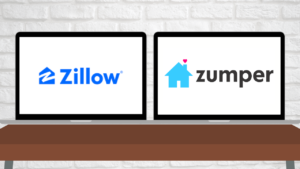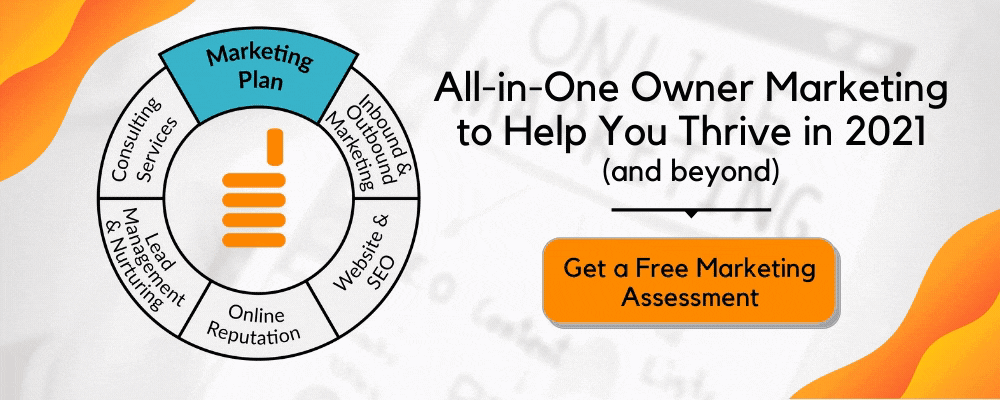Podcast: Play in new window | Download
Summary:
Advertising your vacant rental units online has changed, and that’s due to some acquisitions and partnerships that we’re discussing today with James Barrett, CEO and Director of Business Development at Tenant Turner. On this episode of The Property Management Show, we’re taking a look at property management marketing and how the online marketplace has shifted.
Key Takeaways:
- Market consolidation of rental advertising platforms has driven big changes in the industry.
- You need both Zumper/Facebook Marketplace and Zillow to reach the largest pool of tenants.
- Use these two KPI’s to make rental advertising spending decisions: the number of leads you’re getting from each source and which of those leads get signed.
- Property managers should leverage automation and technology wherever possible.
Catch our full Property Management Marketing series:
Property Management Marketing | Part 2 | Building Waitlists & Pre-Marketing
Property Management Marketing | Part 3 | How Owner Marketing Has Changed
Craigslist is Out and Market Consolidations are In
 Generally, there’s been a transition away from Craigslist. Back in the day, anyone who ever advertised a home for rent in any market had probably used Craigslist. It was free and easy. When Zillow came along, it was a better alternative, especially once they acquired HotPads and Trulia. New features were available for marketing your properties, and individual landlords joined property managers in spending more time advertising their homes on those platforms.
Generally, there’s been a transition away from Craigslist. Back in the day, anyone who ever advertised a home for rent in any market had probably used Craigslist. It was free and easy. When Zillow came along, it was a better alternative, especially once they acquired HotPads and Trulia. New features were available for marketing your properties, and individual landlords joined property managers in spending more time advertising their homes on those platforms.
The latest Craigslist killer is Facebook Marketplace, which has partnered with Zumper and Apartment List. The rental feeds on those sites have been directly integrated onto Facebook Marketplace, which is a huge disrupter in the industry.
Market consolidation has driven a lot of changes. Rent Path is a key player. They own Rentals.com and RentalHouses.com. Recently, they were acquired by CoStar, a huge company that’s further bulking up to compete with Zillow and Zumper. These are the players who will shape the rental advertising industry over the next few years.
Some of these consolidations are financially motivated. CoStar has a lot of money and a large collection of commercial data assets. Taking over a company like Rent Path which was struggling to maintain their competitive edge makes sense.
For more on the state of the rental property market, check out our conversation with Dave Spooner.
Platform Usability: The Costs to Market Rental Properties
 What does this mean for usability?
What does this mean for usability?
Through market aggregation there are fewer players, which means less competition. Zillow’s inclusion model said that if you were renting out a single-family home or a condo or any residential rental property with no more than 50 units, you didn’t have to pay to advertise on their platform. That was a Utopian time, and it no longer exists.
Zillow realized that to compete with these new consolidations, they’d have to start charging. Each player is looking for dominance and exclusivity. Everyone wants to be the Amazon of rental advertising, and with Facebook getting involved, it’s going to be easy for them to emerge as a major force. They’re a tech company and they already have a lot of eyeballs coming to their site.
Another benefit to the Zumper/Facebook Marketplace partnership is credibility. Facebook Marketplace might seem like a dubious place where people go to sell their Harry Potter DVDs. It’s not that. There’s now a serious interface for rental properties, and it’s generating a lot of leads and a lot of leases.
There’s a big difference between individually contributed content and the feed that’s integrated from professional rental advertising domains. Facebook, as we know now, has a lot of scammers. Not every account on Facebook is real. But, the filter comes with the Zumper partnership. Everything that’s contributed has already been verified. You’re getting polished, professional rental listings.
Which Platform Provides More Rental Leads?
 Tenant Turner has collected some data on the volume of rental leads coming in from both Zumper and Zillow. This is the million dollar question for landlords and property managers who are wondering where to advertise their rental properties, especially now that Zillow is charging for the privilege.
Tenant Turner has collected some data on the volume of rental leads coming in from both Zumper and Zillow. This is the million dollar question for landlords and property managers who are wondering where to advertise their rental properties, especially now that Zillow is charging for the privilege.
Zillow was on top for a long time and would account for 75 percent of leads through Tenant Turner. Remember that when we talk about Zillow, we’re including Trulia and HotPads and all the smaller sites that are syndicated. This Zillow platform represented three out of four tenant leads in Tenant Turner.
This has steadily declined, and the number of leads increasing through Zumper is directly related to the partnership with Facebook Marketplace. Zumper has been around for a long time. They’re established, but they never had the market share they needed and wanted until they got together with Facebook.
Now, Zumper is neck and neck with Zillow in terms of leads. That happened over two years.
Zumper also benefited from a lot of venture capital money. The return is starting to pay off now. There’s a huge acceptance rate with Zumper. Those leads are turning into leases pretty reliably. If you’re a property manager who isn’t yet leveraging this tool, it’s time to jump on board.
This doesn’t mean you should turn off Zillow and throw everything at Zumper. You need both.
Probability impacts priority. Property managers want to advertise on both platforms. Zumper is still free right now, so that might make sense as your starting point. But, don’t let Zillow go completely.
Key Performance Indicators for Rental Advertising
James recommends two specific KPIs for property managers when they’re making advertising spending decisions.
- Track the number of leads you’re getting from each lead source.
- Track which of those leads ultimately results in a signed lease.
It doesn’t make sense to pay Zillow for a bunch of leads if those leads don’t convert. However, if you only get a few leads but every single one of those leads does convert to a lease – you should make the investment.
Here are the numbers from Tenant Turner. Remember – these are nationwide numbers and each market is different.
- Number of Tenant Turner leads through Zillow Group: 28 percent
- Number of Tenant Turner leads through Zumper/FB: 26 percent
The quality of leads are about similar, too. You might be concerned that Facebook Marketplace attracts a different demographic than Zillow. That may be true, but they end up converting the same number of leases. This was surprising, and it’s always hard to quantify the seriousness of leads. However, both platforms are successfully converting.
This data is a tool that property managers need to decide how and where to market their rentals.
The Move to Self Showings in 2020
 To say there have been a lot of changes this year would be a dramatic understatement.
To say there have been a lot of changes this year would be a dramatic understatement.
The pandemic has led to more virtual showings and contactless move-in processes. Technology is being adopted faster than ever before. For Tenant Turner, all these self-showings and electronic lockboxes have required them to emphasize scam prevention.
A lot of people moved quickly into a self-showing model without being prepared for it. Tenant Turner has always embraced self-showing technology because it’s effective. However, if you’re a property manager who never used it before and didn’t entirely understand it, you might have opened yourself up to problems and liability.
Contactless entry showing systems require protections. At Tenant Turner, there’s been a lot of work with machine learning and artificial intelligence (AI). There’s been accelerated learning about scammer behavior. It’s easy to identify and then, once a scam has been noticed, the AI at Tenant Turner follows what they’re doing so they can learn from it. Monitoring systems are critical.
Getting an owner on board with self-showings is usually the first impediment for property managers. The pandemic has helped them become more comfortable with the concept. No one wants to wander around an open house with 10 other people right now.
James says he expects a lot of this technology to stick around even once the pandemic passes, but that the Tenant Turner data shows that half of all showings are still being done in person. For a while, in the height of the pandemic, contactless showings were up to 80 percent. Now that people have started to get back to some version of their normal lives, in-person showings are back. Some people simply prefer having someone there to show the home.
The biggest piece of advice James has for 2021 is to leverage automation wherever possible. Posting manually on Facebook Marketplace is cumbersome and it will work better if it’s automated. People are leaning into technology, and that’s ultimately going to be good for the property management industry.
If you have any questions about this podcast or how to automate the marketing of your vacant rental homes, contact us at Fourandhalf.

